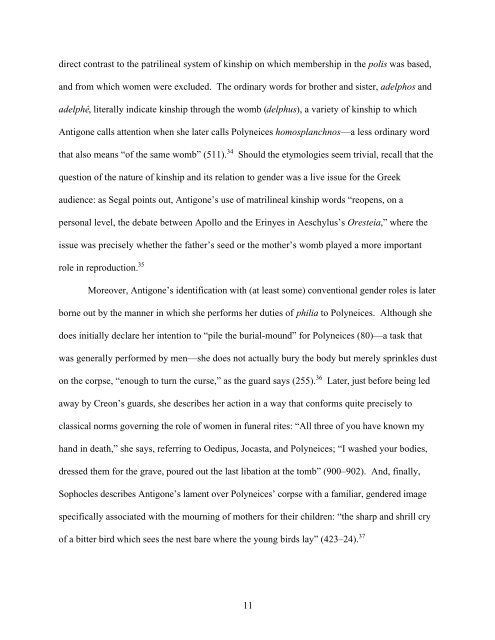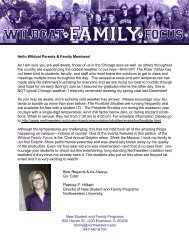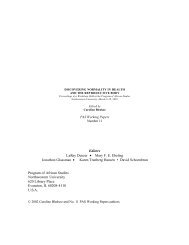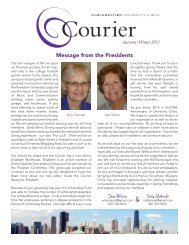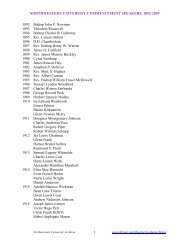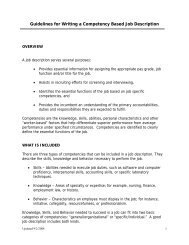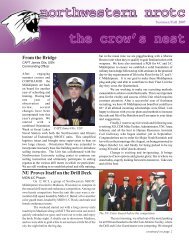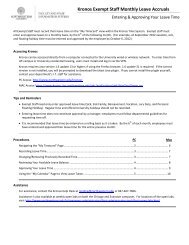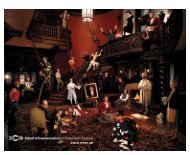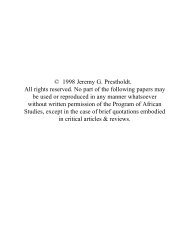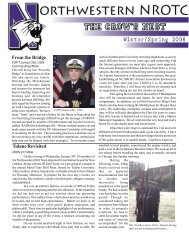TRAGIC RECOGNITION: ACTION AND IDENTITY IN ANTIGONE ...
TRAGIC RECOGNITION: ACTION AND IDENTITY IN ANTIGONE ...
TRAGIC RECOGNITION: ACTION AND IDENTITY IN ANTIGONE ...
You also want an ePaper? Increase the reach of your titles
YUMPU automatically turns print PDFs into web optimized ePapers that Google loves.
direct contrast to the patrilineal system of kinship on which membership in the polis was based,<br />
and from which women were excluded. The ordinary words for brother and sister, adelphos and<br />
adelphê, literally indicate kinship through the womb (delphus), a variety of kinship to which<br />
Antigone calls attention when she later calls Polyneices homosplanchnos—a less ordinary word<br />
that also means “of the same womb” (511). 34 Should the etymologies seem trivial, recall that the<br />
question of the nature of kinship and its relation to gender was a live issue for the Greek<br />
audience: as Segal points out, Antigone’s use of matrilineal kinship words “reopens, on a<br />
personal level, the debate between Apollo and the Erinyes in Aeschylus’s Oresteia,” where the<br />
issue was precisely whether the father’s seed or the mother’s womb played a more important<br />
role in reproduction. 35<br />
Moreover, Antigone’s identification with (at least some) conventional gender roles is later<br />
borne out by the manner in which she performs her duties of philia to Polyneices. Although she<br />
does initially declare her intention to “pile the burial-mound” for Polyneices (80)—a task that<br />
was generally performed by men—she does not actually bury the body but merely sprinkles dust<br />
on the corpse, “enough to turn the curse,” as the guard says (255). 36 Later, just before being led<br />
away by Creon’s guards, she describes her action in a way that conforms quite precisely to<br />
classical norms governing the role of women in funeral rites: “All three of you have known my<br />
hand in death,” she says, referring to Oedipus, Jocasta, and Polyneices; “I washed your bodies,<br />
dressed them for the grave, poured out the last libation at the tomb” (900–902). And, finally,<br />
Sophocles describes Antigone’s lament over Polyneices’ corpse with a familiar, gendered image<br />
specifically associated with the mourning of mothers for their children: “the sharp and shrill cry<br />
of a bitter bird which sees the nest bare where the young birds lay” (423–24). 37<br />
11


